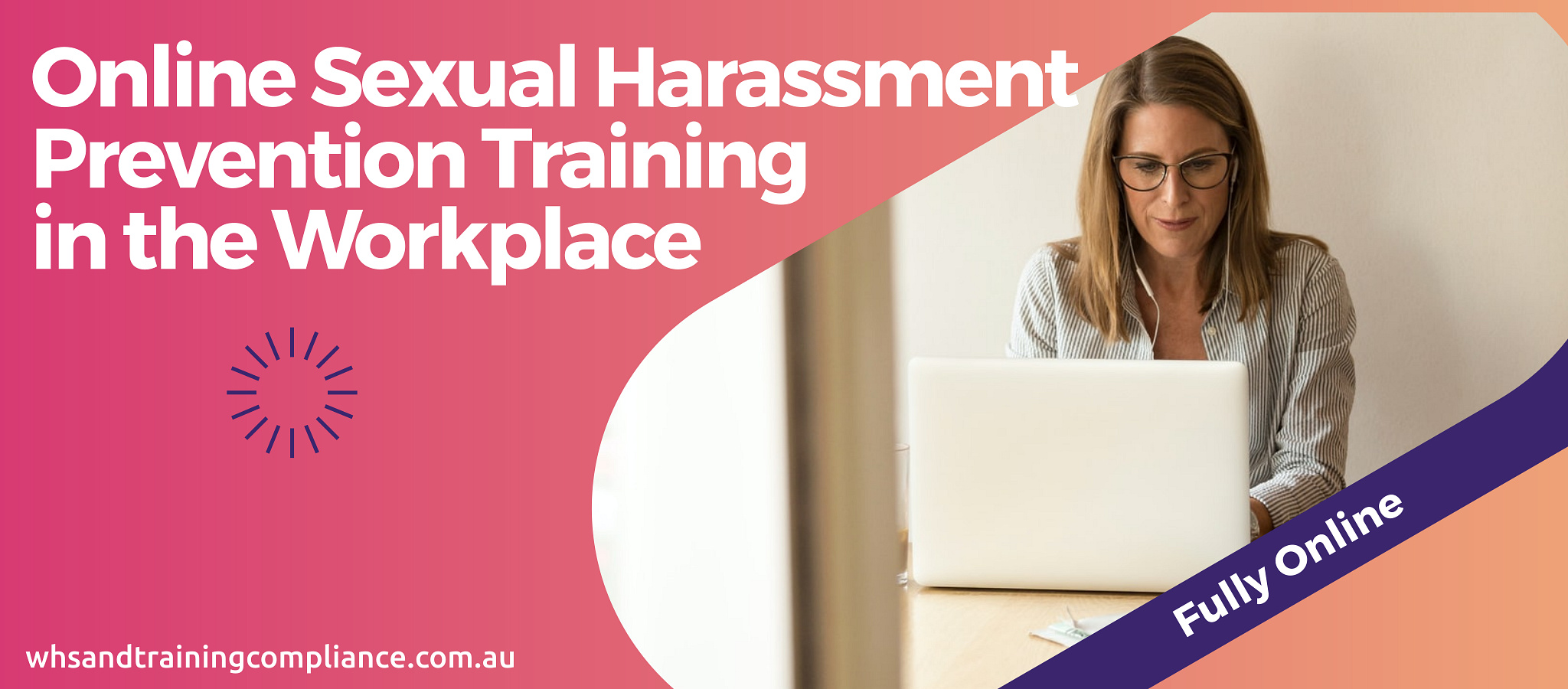Sexual harassment in a workplace is a serious issue that can have a profound impact on the victim’s mental health and overall well-being. Victims of sexual abuse may experience a wide range of emotions, including depression, anxiety, and shame. Coping with sexual harassment can be challenging, but it is essential to take practical steps to recover. Admitting what happened and recognising that it was wrong is the first step towards healing. It is important to remember that sexual harassment is against the Australian laws. Engaging in sexual harassment at work is a form of sexual abuse that can lead to legal consequences for the perpetrator. Victims of sexual harassment should not hesitate to seek help and support from their employers or external organisations. Employers have an obligation to provide a safe working environment, take action against any form of sexual harassment, and provide sexual harassment prevention training.
Sexual harassment in a workplace can cause the victim to experience everything from depression and anxiety to shame, guilt, and self-loathing. If you have been the victim of sexual harassment at work, there are a few practical steps you can take to recover.
Recognition. One of the first steps you can take to overcome sexual harassment is to admit what happened to you and realise that it was wrong.
Against the Australian laws. Sexual harassment is also against the Australian laws. It is against the law to engage in sexual misconduct, soliciting sexually explicit material, or engaging in sexually explicit jokes. Anything about sex that creates a hostile work environment is considered sexual harassment.
It is not gender specific. Furthermore, sexual harassment is not limited to the sexual abuse of men and women, although it is a very common form of sexual harassment. Sexual abuse of women to women, sexual abuse of men to men, and sexual abuse between women and men are also possible.
Although the law rarely applies to isolated incidents of ridicule or teasing, it is harassment when it creates a toxic workplace or when it results in poor employment conditions such as dismissal or suspicion of sexual harassment.
It has impacts on health. It impacts physical and psychological health of individuals. Some of the symptoms that help identify victims of sexual abuse are that they may have trouble sleeping, waking up in the morning, eating, exercising, and withdrawal from the activities they used to enjoy. Other symptoms that can lead to sexual harassment may include headaches, difficulty concentrating, forgetfulness, stomach problems, and high blood pressure.
You may also feel betrayed, angry, powerless, hopeless, and out of control. And in extreme cases, victims may suffer from depression, anxiety, and suicidal thoughts.
What is Sexual Abuse?
Sexual abuse is a form of violence that involves unwanted sexual activity, physical contact, or behaviour that is forced upon an individual without their consent. It can happen to anyone, regardless of age, gender, or sexual orientation. Sexual abuse can take many forms, including rape, molestation, sexual harassment, and incest. It often involves a power dynamic, with the abuser exerting control over the victim. The effects of sexual abuse can be long-lasting and devastating, including physical injuries, emotional trauma, and psychological disorders. It is important to recognize the signs of sexual abuse and seek help if you or someone you know has been a victim.
What is Sexual Assault?
Sexual assault is a form of sexual abuse that occurs when someone engages in sexual activity with another person without their consent. This can include unwanted touching, kissing, or sexual intercourse. The act of sexual assault is a serious crime that can have long-lasting effects on the victim’s physical and mental health. It is important to understand that sexual assault is never the victim’s fault, and that there is never any justification for this type of behavior.
Victims of sexual assault may experience a wide range of emotions, including fear, anger, and shame. They may also suffer from physical injuries and may require medical attention. It is important for victims to seek support from trained professionals, such as counselors or therapists, who can help them work through their feelings and begin the healing process.
It is also important for society as a whole to take steps to prevent sexual assault from occurring. This includes educating people about consent and healthy relationships, as well as holding perpetrators accountable for their actions. By working together to create a culture of respect and understanding, we can help prevent sexual assault and ensure that all individuals are able to live free from violence and abuse.
Some steps victims of sexual harassment could take to cope with sexual assault
Talk to someone about harassment
It is always helpful to talk to a safe person. Try to find someone who will respect your feelings and opinions. Do not share your thoughts and feelings with someone who will tell you that you are overreacting or upset. If you do not have someone to talk to about your experience, consider joining a support group or starting your own.
Describe your experience
Describe how sexual harassment affected you. Examine the different emotions you feel. Sometimes it helps to include in your journal a letter to the abuser. Say all the things you wish you had said, but you did not. It can be very healing to get all that out of your system. Recording your thoughts in a journal can also help to make sense of what has been happening to you. And your journal is a safe place to voice whatever is on your mind without filtering your thoughts.
Avoid blaming yourself
What happened to you was not your fault. You did not cause it and you cannot control anyone else. Remind yourself that you have nothing to be ashamed of and you should not feel guilty. Self-criticism will delay your healing. Only the guilty person is the perpetrator. They have chosen to sexually harass you. The only decision you can make in this regard, is to acknowledge, and respond to deal with what happened to you. Remember, you can fully control your response and where you are going from here. Focus on that fact, be brave and let it empower you.
Find Options
An important part of the overcoming process is to lay back and avoid the trauma you have experienced. Sometimes this means changing jobs or occupations. Very often, personal identity is tied to their work. Instead, rediscover what makes you who you are. Start a new hobby and develop new hobbies. Find a healthy way to handle, and try to stay positive about what is going on in your life.
Use experience to help others
Sometimes, you can bring meaning to what happened to you by integrating your knowledge into your life in some way. For example, you could write a blog about your experiences and give suggestions to readers. Alternatively, you can lead a support group, build a website for victims of abuse, or talk to others. Another option is to volunteer for non-profit groups dealing with sexual harassment. The key is to take a bad experience and turn it into something positive. Doing so helps build your resilience.
Get help
If you find it difficult to continue after your experience, you may benefit from seeing a counsellor who specialises in dealing with sexual harassment in the workplace. Professional counsellors for sexual harassment or bullying may be helpful. Additionally, if you have been harassed at work or school, attorneys have advised you not to use your school or the employer’s mental health services. Sometimes privacy lines are blurred and the mentor will share your information with others in the organisation. In extreme cases, they may even try to protect the organisation from suspicion. It is always best to find a counsellor outside of sexual harassment. Not only is this an additional protection for your privacy, but you may also find it easier to open up to someone who may not be associated with the organisation where the abuse took place.
Report
It is important to report what happened to you. In the end, the perpetrator could continuously harass you or harass another person. Do you know about the Respect@Work report, there has been some changes on the Fairwork Act. These changes include the provisions for Sexual Harassment at work, and stopping the harassment. Anyone in a workplace, experiencing Sexual harassment can place a “Stop Sexual Harassment at work” order through Fairwork Commission. Externally, you can also report this to State/Territory regulators. Internally, can report this to your company. Remember you are not alone, as Ana Navarro stated we all have a duty, must have zero tolerance for sexual harassment, even if the perpetrator is somebody we like and admire.
Training staff on Workplace sexual harassment prevention is important, as it effects health and productivity. Also, it is against the law.
Conclusion
Sexual harassment in a workplace is a serious issue that needs to be addressed. It can take many forms, including unwanted advances, inappropriate touching, and suggestive comments. If you are experiencing sexual harassment at work, it is important to understand that you are not alone. Many individuals have faced similar situations and have found ways to cope with them.
One way to cope with sexual harassment at work is to speak up. This may involve reporting the harassment to a supervisor or human resources representative. It is important to document any incidents of sexual abuse to support your claims. Additionally, seeking support from friends or family members can help you navigate through this difficult time.
It is important to care about sexual harassment at work because it can have serious consequences for both the victim and the workplace as a whole. Victims may experience psychological distress and physical symptoms such as headaches and insomnia. The workplace may also suffer as a result of sexual harassment, including decreased productivity, increased absenteeism, and damage to the company’s reputation.
In conclusion, coping with sexual harassment at work requires courage and support from others. If you are experiencing sexual harassment, remember that you are not alone and there are resources available to help you. It is important to care about this issue because it affects not only the victim but the workplace as a whole. Taking action against sexual harassment can lead to a safer and more productive work environment for everyone.
Do you know WHS and Training Compliance Solutions is offering Sexual Harassment Prevention Training – online, onsite and e-learning platform?
Our e-learning program is comprehensive, can be completed by the employees any time, any day, any place. It is an interactive e-learning program, that has scenarios that has been adopted from real court cases, in order to increase awareness, encourage change in behaviour.
How can you register for our e-learning sexual harassment prevention training?
Online registration will require you to visit our e-learning market place or visit our webpage. You can make a payment in both weblinks.
What if we have a group of employees to attend? At this instance, you can contact us with the list of employees, and we will organise your team’s access to our e-learning program.
We do provide our training sexual harassment prevention training onsite within Australia.
Contact us for more information.
Access Psychosocial Hazards Books from Amazon: Psychosocial Hazards












